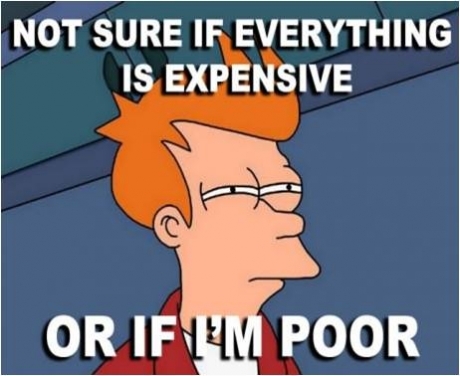Poverty Mentality
- October 28, 2013
- Posted by: Rochelle
- Category: Marketing + Selling

Is your mindset one of poverty or one of riches?
Before you answer, consider this. What did you tell yourself the last time you made—or chose not to make—an investment in your future?
Did you say, “I know this expense is the right thing to do to build my business, my audience, my body of work”? Or did you say, “Yes, this would be a good thing to do but I just can’t afford it” and then let it drop?
Nothing wrong with trying to find a cheaper way to make it happen—bootstrapping is a time-honored tradition for a reason. But walking away from something you know in your gut is necessary to make your vision happen isn’t bootstrapping. It’s a poverty mentality.
I see it often in coaches and the healing arts. They have a truly palpable (not to mention admirable) sense of mission that drives them to center their work around helping others. They are often passionate, compassionate, internally motivated professionals. But somewhere along the way, they decided it’s just wrong to be paid what they’re worth.
They toil in the trenches, happy to be doing the work, but unhappy because their own needs aren’t getting met.
Sound familiar?
If you don’t put your own oxygen mask on first, you simply can’t fuel your best work, much less stay in the game.
I once worked with a coach who had calculated her rates by determining the bare minimum she needed to survive. As we tested her theory, I showed her that her definition of outstanding success—filling her coaching hours—would result in barely making ends meet. How would that serve her or her children?
Instead, we determined market rates and then juiced them upwards of 25% to reflect her experience. And then we created a special, to-be-used-with-utmost-care discounted package for the truly needy she would not be able to help otherwise.
Every single new prospect was quoted the higher rates. Her win/loss ratio changed not a bit. As her total revenue started climbing, she felt valued for her work and drew even closer to her clients.
Her future client pool began to morph as well. Those who didn’t think they could afford her (mired in their own poverty mentality) drifted away, while new, on-target prospects joined her world.
The bottom-line: If you want to run a thriving business, there is no room for a poverty mentality. You deserve to work with clients who appreciate you and are willing to pay for your great work.
Like what you see here? Head on up to that orange bar to sign up pronto and I’ll deliver my weekly insights directly to your in-box.







My pricing model just increased.
Love it Ed!
Rochelle,
Thank you for raising pricing; it remains so important. We (well a bunch of fellow attorneys) discussed it at a Continuing Legal Education program last Spring. The discussion there also involved the traditional hourly billing against retainer/fee-based arrangements. I recently reviewed a retainer with a client and found him all too happy to “endure” a fee increase earlier this month. Communication remains important and demonstrating you make a difference for your client and differentiate yourself helps a lot. To me, a brief intro rate for a short period might work but be prepared to drop a client who does not agree to a more reasonable fee structure after that period; and make sure you do not get in too deep.
-Corey
I think we have to keep talking about our pricing models. It’s a balance–serving the right clients (and making a clear difference in their lives), feeling valued and making the life we most want…